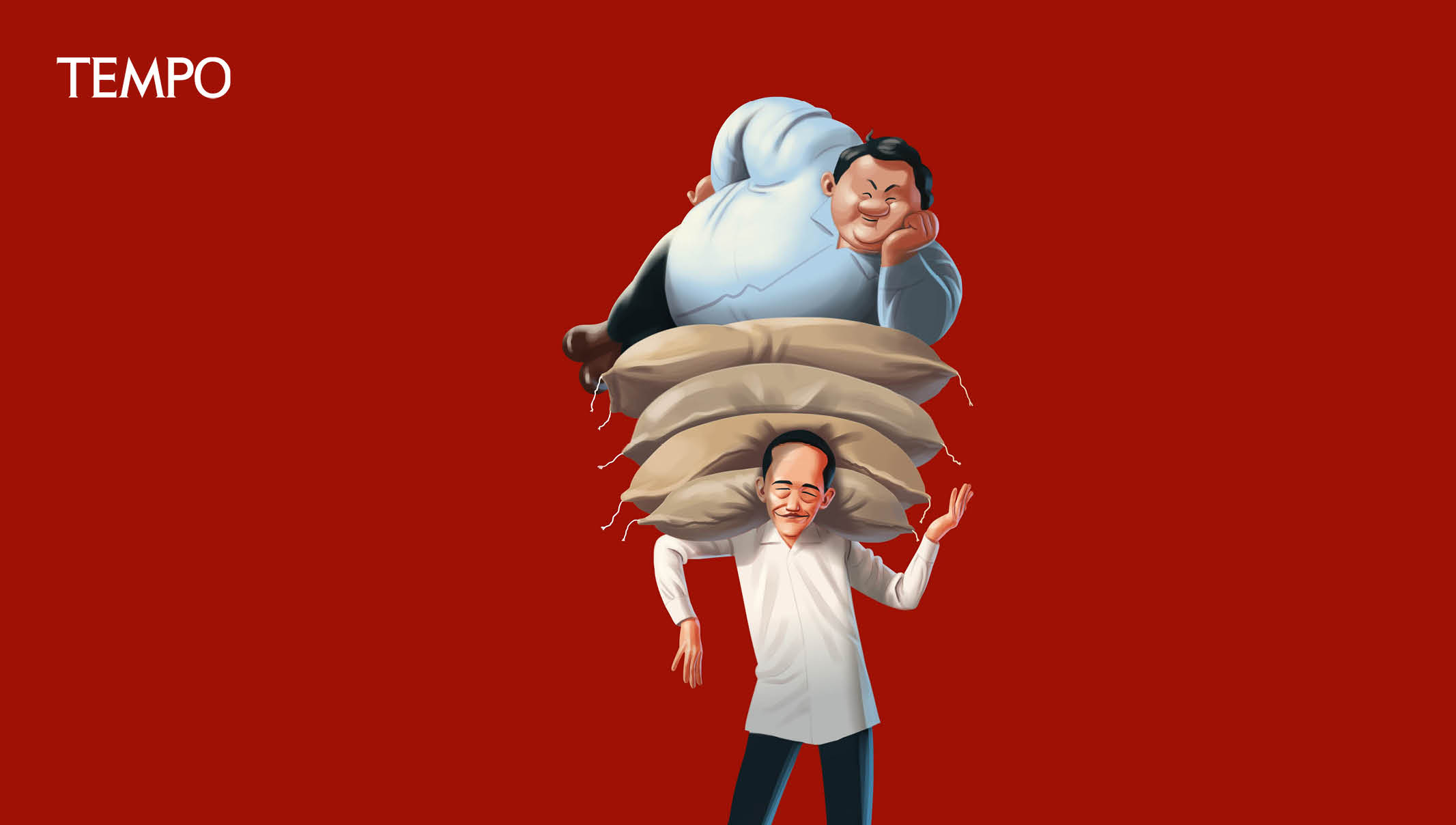Manipulating Government Social Assistance
Social assistance is prone to being manipulated for electoral interests. Misusing social assistance is political corruption.
Tempo
January 22, 2024

SOCIAL assistance should aim to reduce poverty and increase the purchasing power of the most vulnerable groups in society. But ahead of the elections, the president is prone to misusing social assistance for electoral purposes, as we are seeing these days, a month before voting day on February 14.
President Joko Widodo is increasingly active in distributing social assistance sourced from the state budget every time he makes a working visit. Jokowi's maneuver could have an impact on the electability of Prabowo Subianto, a presidential candidate whose running mate is Jokowi’s eldest son, Gibran Rakabuming Raka.
This alleged abuse was seen, for example, when Jokowi distributed rice assistance in Serang Regency, Banten, in early January. Prabowo-Gibran billboards appeared not far from the distribution location. In Banten, the latest Indikator Politik Indonesia poll found Anies Baswedan-Muhaimin Iskandar on top with 36.2 percent of the vote, with Prabowo-Gibran at 33.2 percent and Ganjar Pranowo-Mahfud Md. at 23.7 percent.
Jokowi has distributed social assistance in other areas. In December 2023, he distributed rice assistance in Labuan Bajo, East Nusa Tenggara; Pekalongan, Central Java; and Banyuwangi, East Java. Previously, he distributed rice to residents of Gianyar, Bali. The provision of social assistance in Bali was even marked by an incident involving the removal of the Ganjar-Mahfud billboards and flags of the Indonesian Democratic Party of Struggle (PDI-P) around the location where the aid was handed out.
Putting aside the structuralist view that sees social assistance as perpetuating poverty, this assistance is actually a policy that can slow an economic turndown. When the economy weakens, it is appropriate for the government to allocate a budget for social assistance. This program is effective in boosting people’s purchasing power, which is the motor of Indonesian economic growth.
The problem is, amidst a patron client-based culture, social assistance is prone to manipulation for electoral interests. Rulers who have access to political and economic resources can easily disguise them in order to mobilize voters to support certain candidates. As this magazine found, Jokowi and Prabowo want to win the 2024 election in one round.
Moreover, the distribution of this social assistance does not involve the Social Affairs Ministry, which is led by Tri Rismaharini, a PDI-P politician who supports the Ganjar-Mahfud ticket. The list of recipients of social assistance has referred to data from the Coordinating Ministry for Human Development and Culture. Jokowi also entrusted the distribution of social assistance to the Coordinating Ministry for the Economy led by Airlangga Hartarto, General Chair of the Golkar Party, which supports Prabowo.
So, with these connections in mind, it is difficult to rule out the presumption that the copious amounts of social assistance, the distribution of which will be extended until June 2024—when the presidential election will enter the second round—is not aimed at electoral interests. Moreover, politicians supporting Prabowo, who distributed social assistance openly stated that the assistance was “presidential assistance” or “Jokowi’s social assistance.”
A study done by the Center for Strategic and International Studies revealed a correlation between social assistance and presidential candidate electability. The survey, released in December 2023, showed that Prabowo received the highest popularity, 36.6 percent, among respondents who received social assistance. But this figure is nearly the same as the popularity of Ganjar Pranowo at 36.1 percent.
The effectiveness of social assistance as a boost to electability occurs for candidates running for a second term. In Brazil, the Bolsa Família program boosted Lula da Silva’s vote share when he was re-elected president for a second term. In Indonesia, President Susilo Bambang Yudhoyono provided social assistance of almost Rp23 trillion ahead of the 2009 elections.
Voters also need to understand that social assistance funds do not come from the pocket of the president, Jokowi, Prabowo, let alone Gibran. Social assistance funds come from the National Budget, which is collected from taxpayers. Therefore, the misuse of power and state financial resources to campaign for certain candidates is political corruption.
